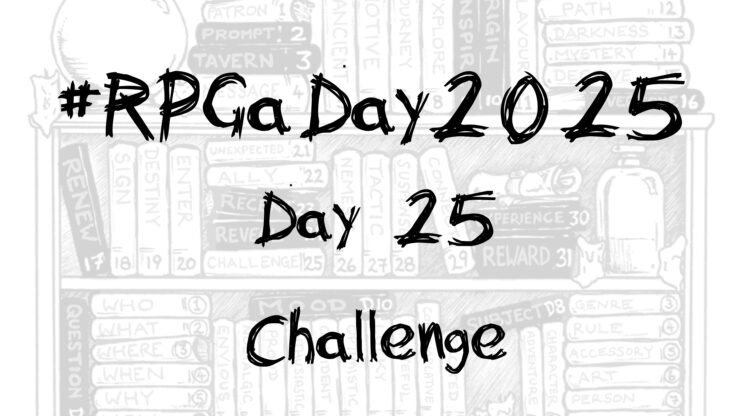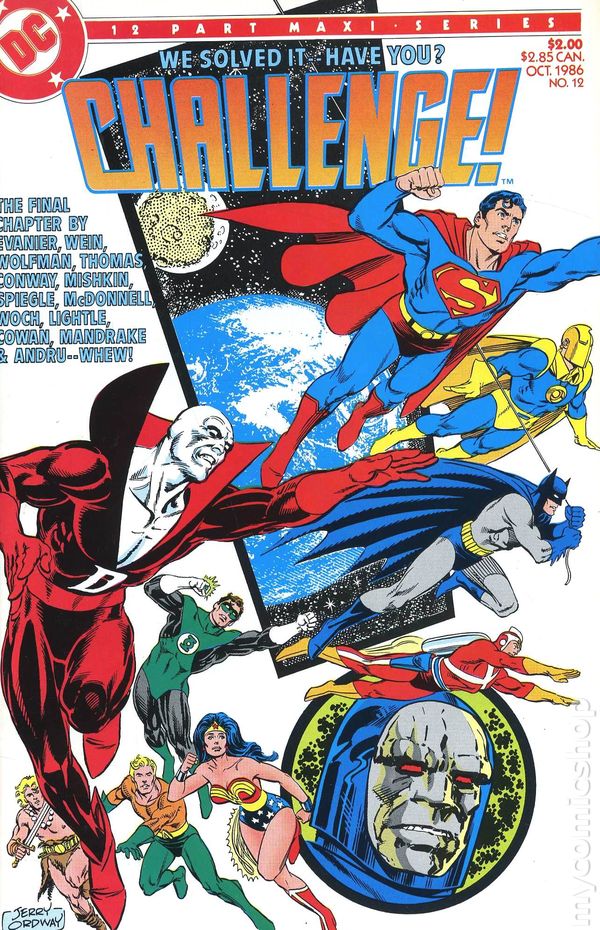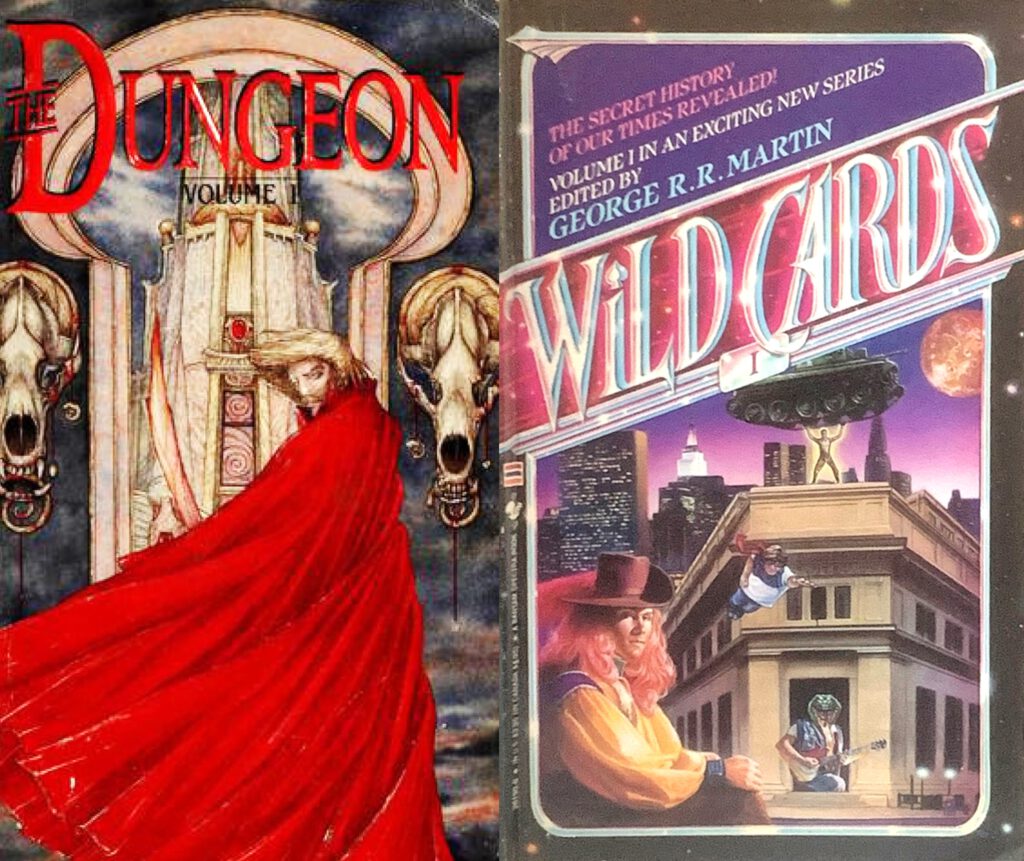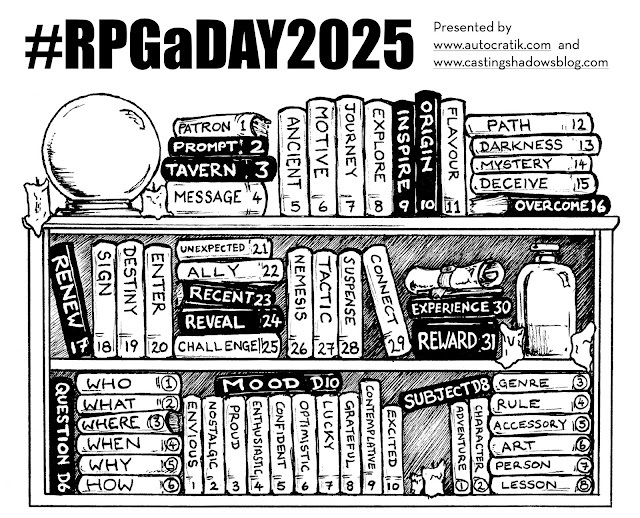Happy Monday! We begin the final week of RPG a Day 2025. This month has really flown by. I’m still missing one post for the month, specifically day 10, and I will get to it before the month is over, I promise. But let’s get back to the topic at hand, the prompt for today is Challenge. Weirdly, my brain has been free associating this month, and for this topic, my mind turned to the DC mid-1980s DC Challenge series published by DC Comics. In a way, this makes me think of the challenges of being a Game Master. Allow me to explain.
If you have never heard of DC Challenge, or a series with a similar concept, like the Kamandi Challenge, let me introduce you to them. I’ll quote the description by TV Tropes that summarizes DC Challenge this way: “The DC Challenge was a 12-issue maxi-series published by DC Comics from November 1985 to October 1986. It was a Round Robin series, with each of the first 11 issues helmed by a different author and artist, who ended each issue on a Cliffhanger which the next team had to resolve. The final issue was a collaborative effort by six of the authors.”
A different group of creators works independently on each issue, telling a continuous story with “no collaboration”. That last bit is in quotes because, as you read above, they worked together to wrap up the story. I don’t remember which issue I started reading the story in. It was either #4 or #6, most likely the latter, because that lines up with the time I started going to the one local comic shop back then. I believe I have #4 because I purchased the back issue later.
I don’t own the whole series. I purchased issue #3 many years later. Never owned #1 or #2. As much as I liked the gimmick of the series, I don’t recall it being particularly good. A little tongue in cheek, I was more of a fan of the execution than the final product. The idea of creators having to make sense of the story that came before and set up a cliffhanger for the next set of creators fascinated me.
This format was probably why I was also enthralled by The Dungeon series of novels and the shared world the authors created. I mentioned The Dungeon as inspiration in a previous post. I had read series like Wild Cards, a shared world super-hero-inspired anthology series, but what fascinated me were DC Challenge and The Dungeon, where new creators pick up the work of others and build upon what was created before.
In many ways, this endeavor always reminds me of what being a Game Master is all about. As much as I like world-building and the years I’ve spent crafting the worlds we play in, these are never my creation alone. I may set up the stage for certain situations, but my ideas and concepts rarely remain the same when they meet the player’s input. And that’s a good thing!
Too many GMs also want to be storytellers, but we should not strive to tell our story and have the players be the audience, which is boring. Our role is to be interpreters. To collaborate with our players, we weave together their disparate ideas and character concepts, facilitating a shared experience where we create a story together.
I guess my concept of GM is a mix of old-school and modern story-game elements. GMs should not be lone storytellers; players have agency, a shared role where we all create a story together.
When it works, when all participants are in sync, the process is delightful. When there is dissonance, where interest, mood, and expectations clash, as a GM who usually is the one enabling the collaboration, I feel like the author of an issue of DC Challenge, trying to make sense of the story the best way I can.
These less-than-ideal situations can happen in the larger context of a campaign, in a specific session, or in an encounter. Ideally, a GM can make sense of the situation, regroup, learn from the experience, and move on to become a more experienced GM, whether it’s discussing it with players after a particularly contentious session, refocusing a campaign in a larger context, or simply rolling with the punches and moving forward.
We often discuss the wonders of Game Mastering, including the tools and strategies for success, but we also need to address the small-time frustrations and feelings of inadequacy that arise when things don’t go as planned. Knowing we must improvise, and we are not always best at it. To work through our feelings, to take a stab at making sense of the story and moving forward. The ability to do just that, to cut through the frustration and go forth, is perhaps the most essential tool you can have to be a long-term GM.
What do you think? Agree or disagree? How do you deal with frustrations as a GM? AS a player, how do you support your GM? I’d love to read your comments or reactions to the prompt; feel free to share them here in the comments or tag me wherever you do. If you choose to join in the conversation, don’t forget to include the #RPGaDay2025 hashtag so the community can find your contribution.




